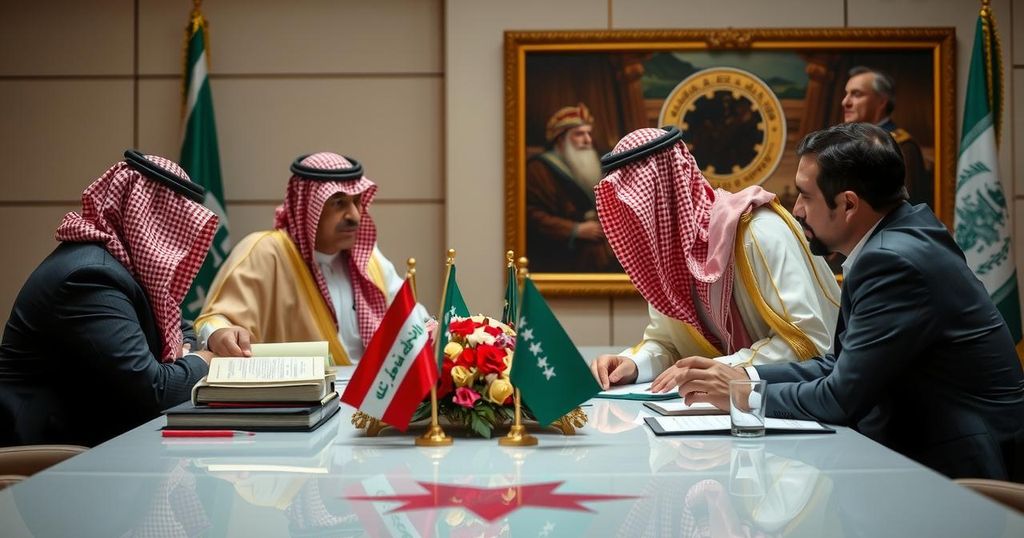Arab and EU Diplomats Convene in Saudi Arabia to Discuss Syria’s Future

Diplomats from the Arab world and Europe gathered in Saudi Arabia to discuss Syria’s future post-Assad. The talks aim at assessing the possibility of lifting sanctions if the new leadership commits to forming an inclusive government. Over a decade of civil war has caused immense loss and displacement in Syria, necessitating international dialogue and support.
On Sunday, distinguished diplomats from the Arab world and Europe convened in Riyadh, Saudi Arabia, to deliberate on the situation in Syria, seeking pathways towards stability following the recent regime shift. The discussions are structured into two segments: the first focuses on Arab officials, while the second invites broader international engagement, featuring representatives from Turkey, France, the European Union, and the United Nations, as reported by a Saudi official to Agence France-Presse.
These talks are taking place against the backdrop of Syria’s new leadership under Ahmed al-Sharaa, whose forces successfully overtook Damascus, leading to the ousting of former President Bashar al-Assad last month. Al-Sharaa is advocating for the lifting of international sanctions imposed upon Assad’s regime.
Since 2011, Western powers, including the United States and the European Union, have enacted strict sanctions against the Assad government in response to its violent suppression of anti-government protests, which instigated a widespread civil war. Over a decade of conflict has resulted in over half a million casualties, severe economic deterioration, and widespread displacement of the Syrian populace, with millions seeking refuge abroad, particularly in Europe.
Kaja Kallas, the High Representative of the European Union for Foreign Affairs and Security Policy, indicated in recent remarks that the EU might consider rescinding sanctions if Syria’s new leadership takes constructive steps towards forming an inclusive government that ensures the protection of minority groups. These developments signify a pivotal moment in the ongoing efforts to stabilize Syria and restore its governance.
The ongoing crisis in Syria, which began in 2011, has resulted in a humanitarian catastrophe and geopolitical turmoil in the region. With the ouster of long-time authoritarian ruler Bashar al-Assad, a power vacuum emerged, prompting discussions regarding the future governance of Syria and the possibility of lifting sanctions. Key international actors, including the EU and the United Nations, are evaluating how to engage with the new leadership and ensure a stable and inclusive government is established to halt further conflict and suffering.
The diplomatic discussions in Riyadh signify a critical effort by Middle Eastern and European nations to address the post-Assad landscape in Syria. The potential for easing sanctions hinges on the formation of an inclusive government that protects minority rights. The future of Syria remains precarious, and these talks could play a fundamental role in paving the way for national reconciliation and stabilization.
Original Source: www.scmp.com








